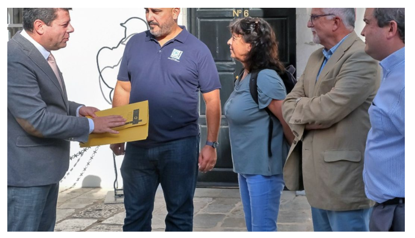The ESG has noted the recent statements in the press about the closure of La Linea beaches and how our authorities have verified that the cause of this, by way of sewage contamination, has not presented a threat to Gibraltar’s beaches. While this topic has been argued defensively in the Spanish media, it nevertheless raises the issue of our own beaches and sea water quality.
The group, along with other residents, can verify that our own waters regularly contain flotsam (plastic and other litter), and the less determinable presence of scum-like substances which are likely to be organic in nature. The ESG has expressed its concern over the years that however thoroughly we test the quality of our bathing waters in Gibraltar, the frequency of pollution challenges the standards that are set by the EC.
All over European coastlines, the issue of bathing water standards continues to be challenged both publicly and in court (Surfers against Sewage). Whether from sewage discharge or industrial pollution, the sea is constantly coming under enormous pressure to absorb and breakdown the quantities of waste that are quite literally thrown at it. The range of water quality standards from the acceptable to the very good under EC law also allows a member state to comply with the law while maintaining minimal water standards. Research shows that even within the EC and the WHO there is disagreement over what is deemed to be safe levels of bacteria in the sea that will not cause health problems.
Given our beach culture and the importance of providing safe recreational areas for the ordinary Gibraltarians who do not have access to private swimming facilities in the hot summer months, it is imperative that we increase water monitoring and aim to follow the highest bathing water standards. While our authorities assure us that these standards are already achieved our eyes tell us otherwise. Water testing, for instance should be carried out at times when water pollution is visibly present to ensure its safety for bathers.
The ESG also use this opportunity to ask the Government of Gibraltar when our own sewage treatment plant promised some years ago will be constructed which will help to reduce some of our locally produced sea pollution. It is lamentable that most of the towns on the Bay also continue to discharge untreated sewage into the sea and while currents help disperse, the surge in population numbers has made levels untenable.
This atrocious situation must be addressed.





